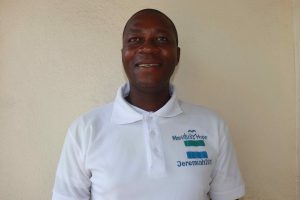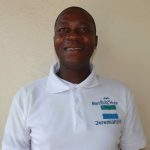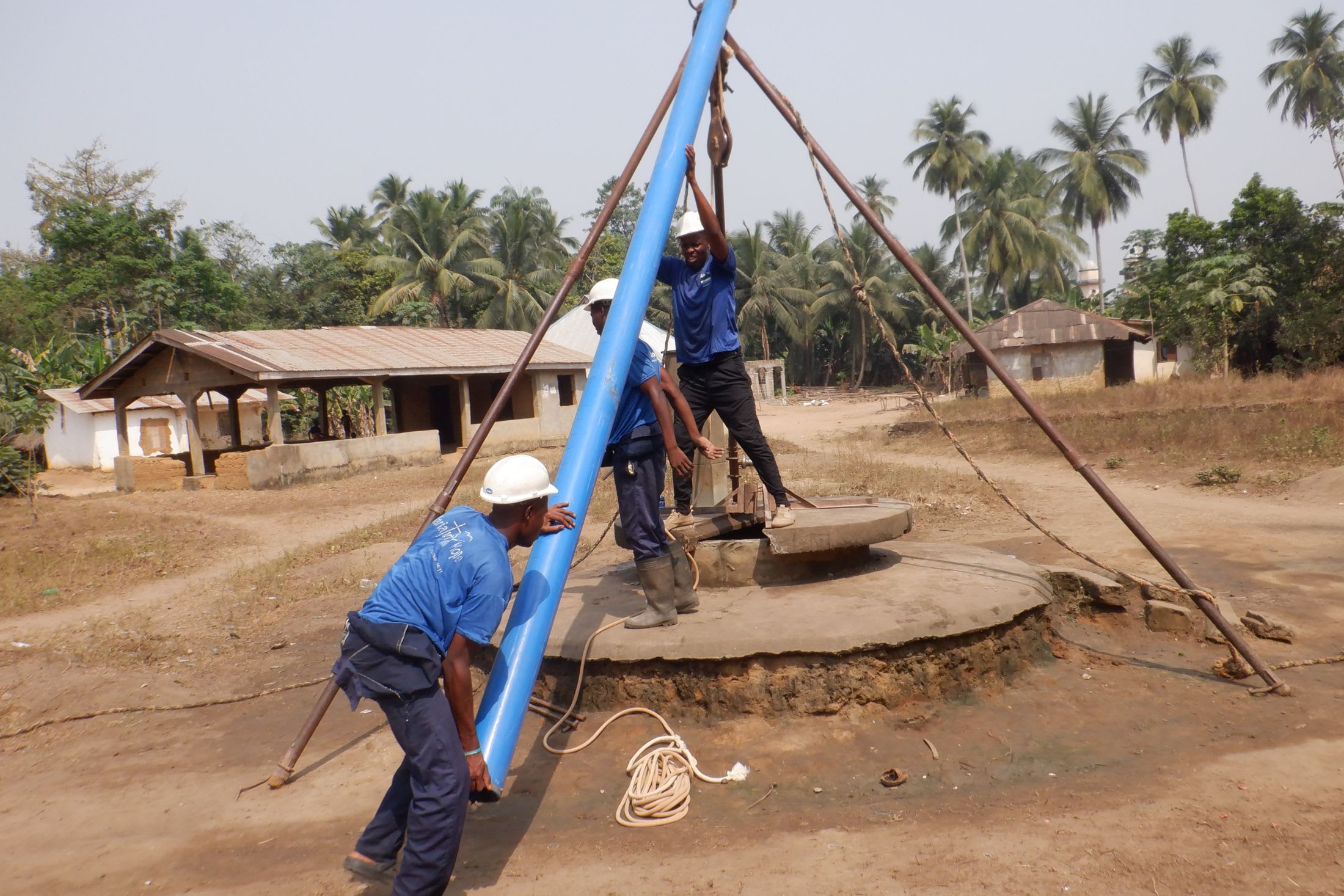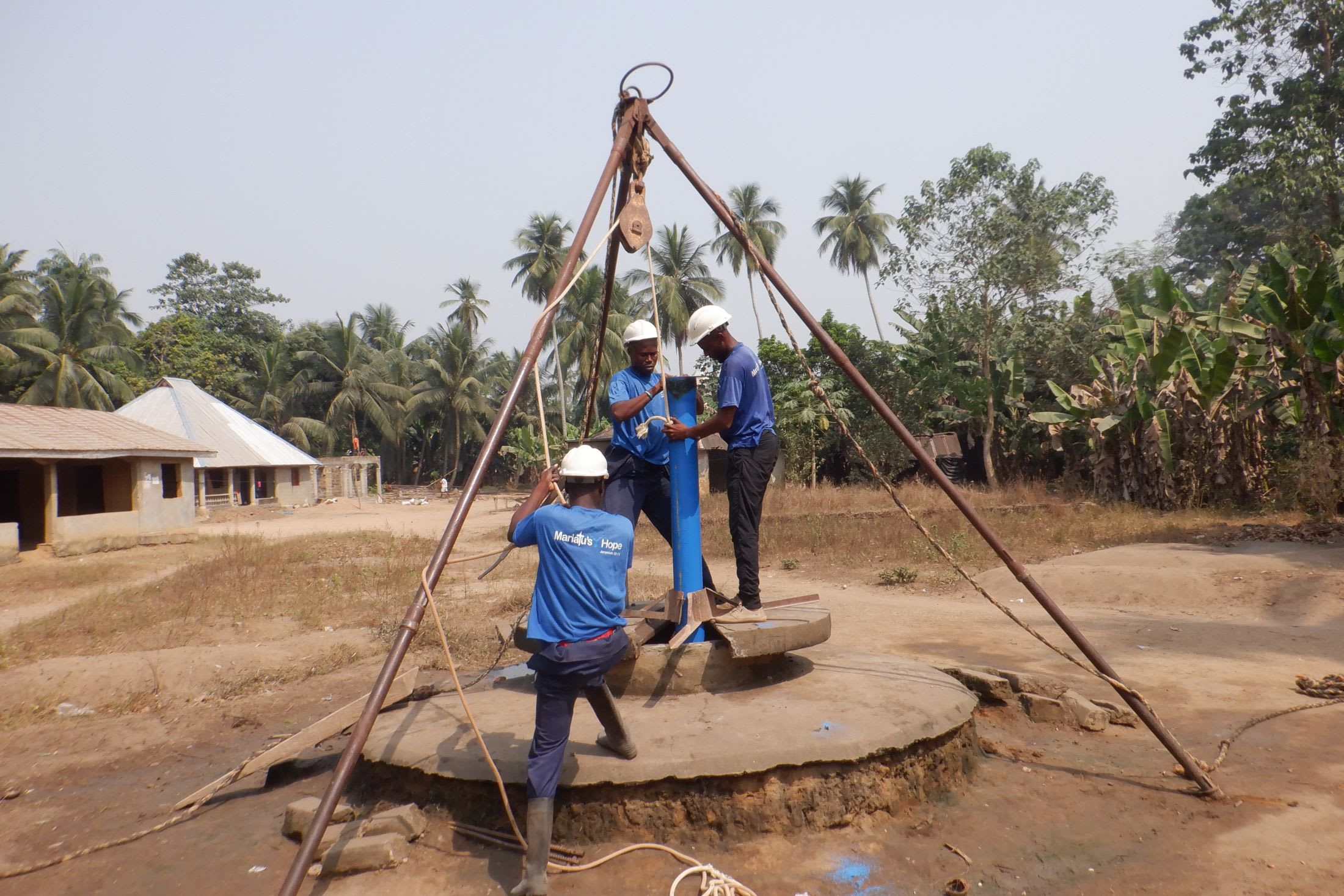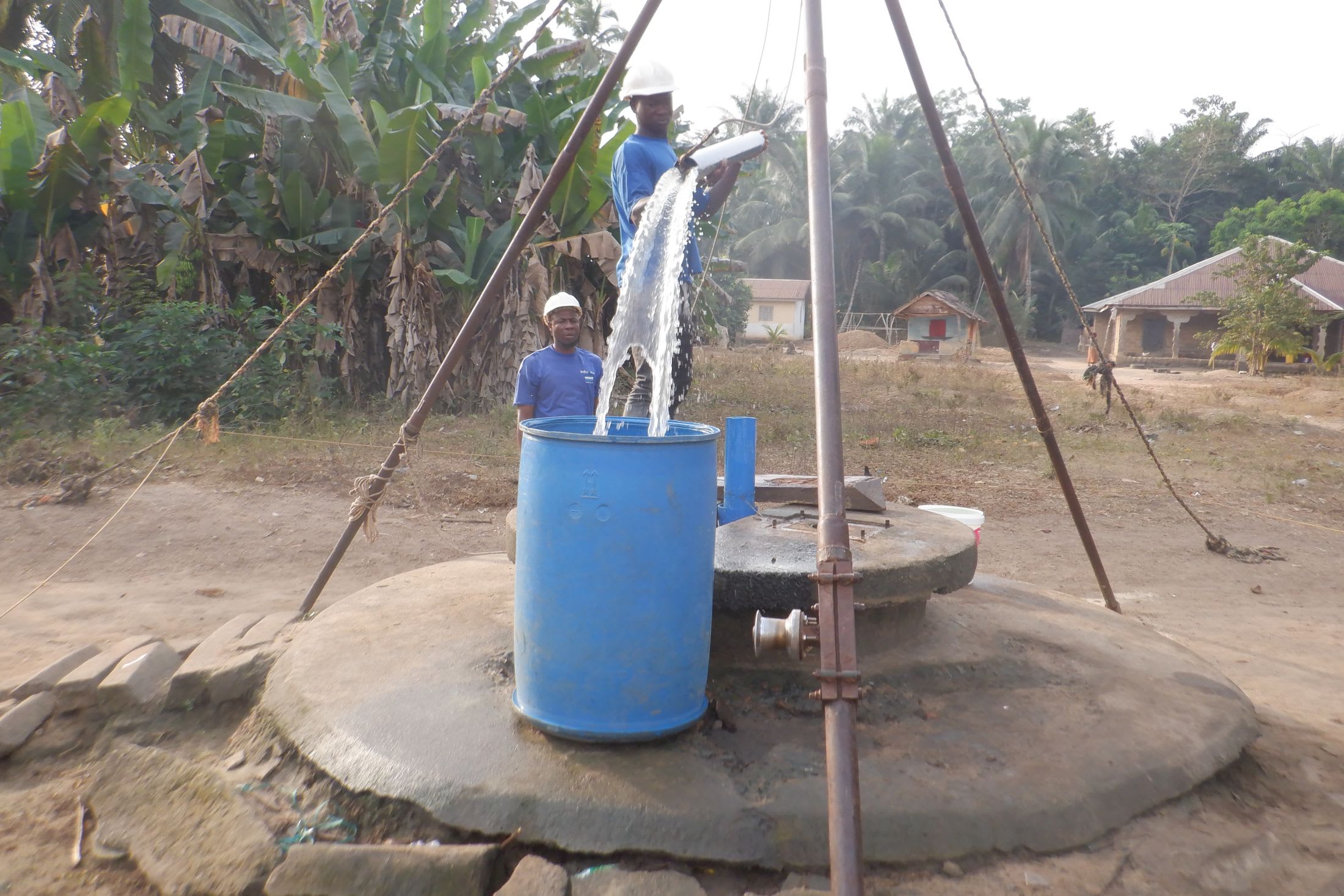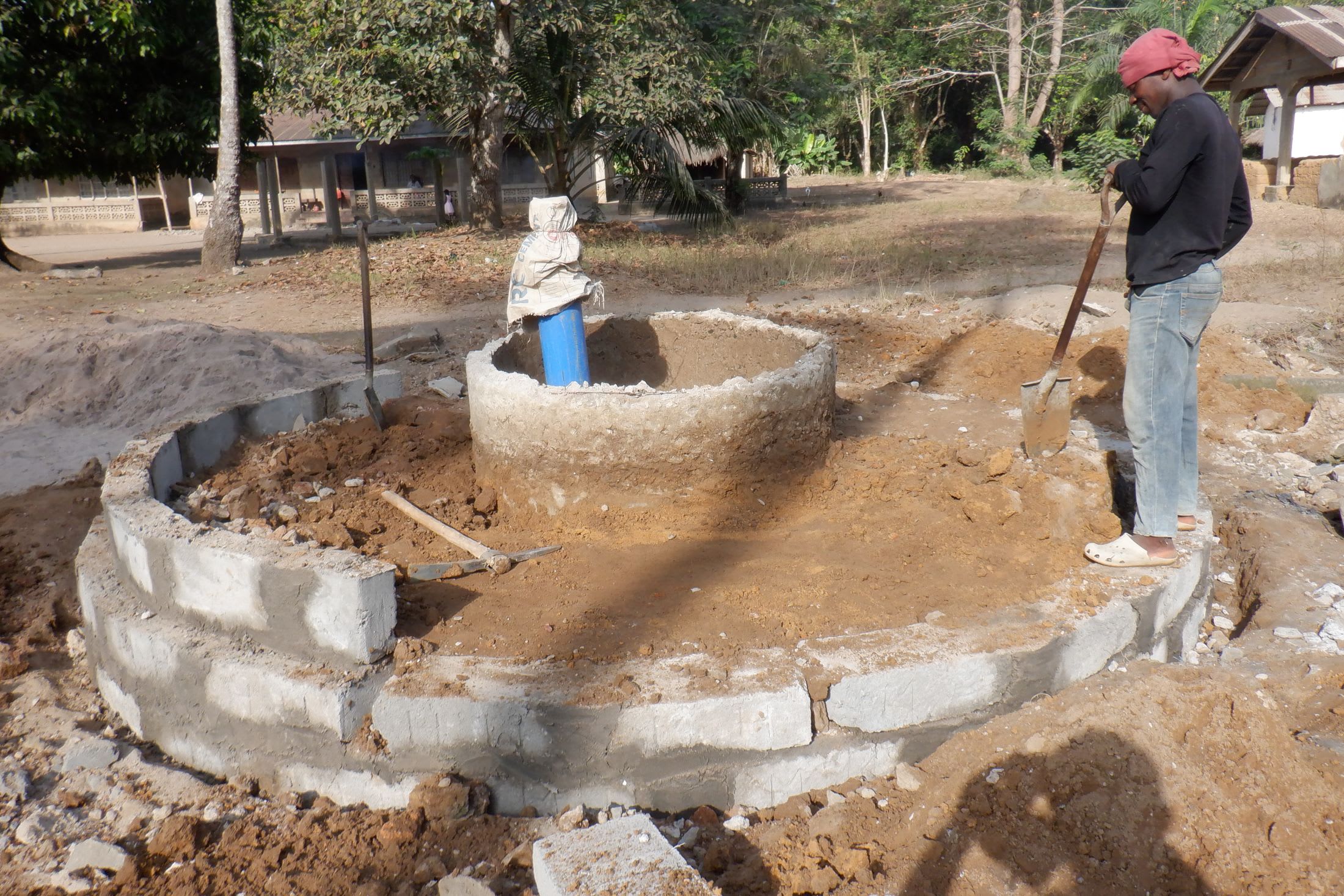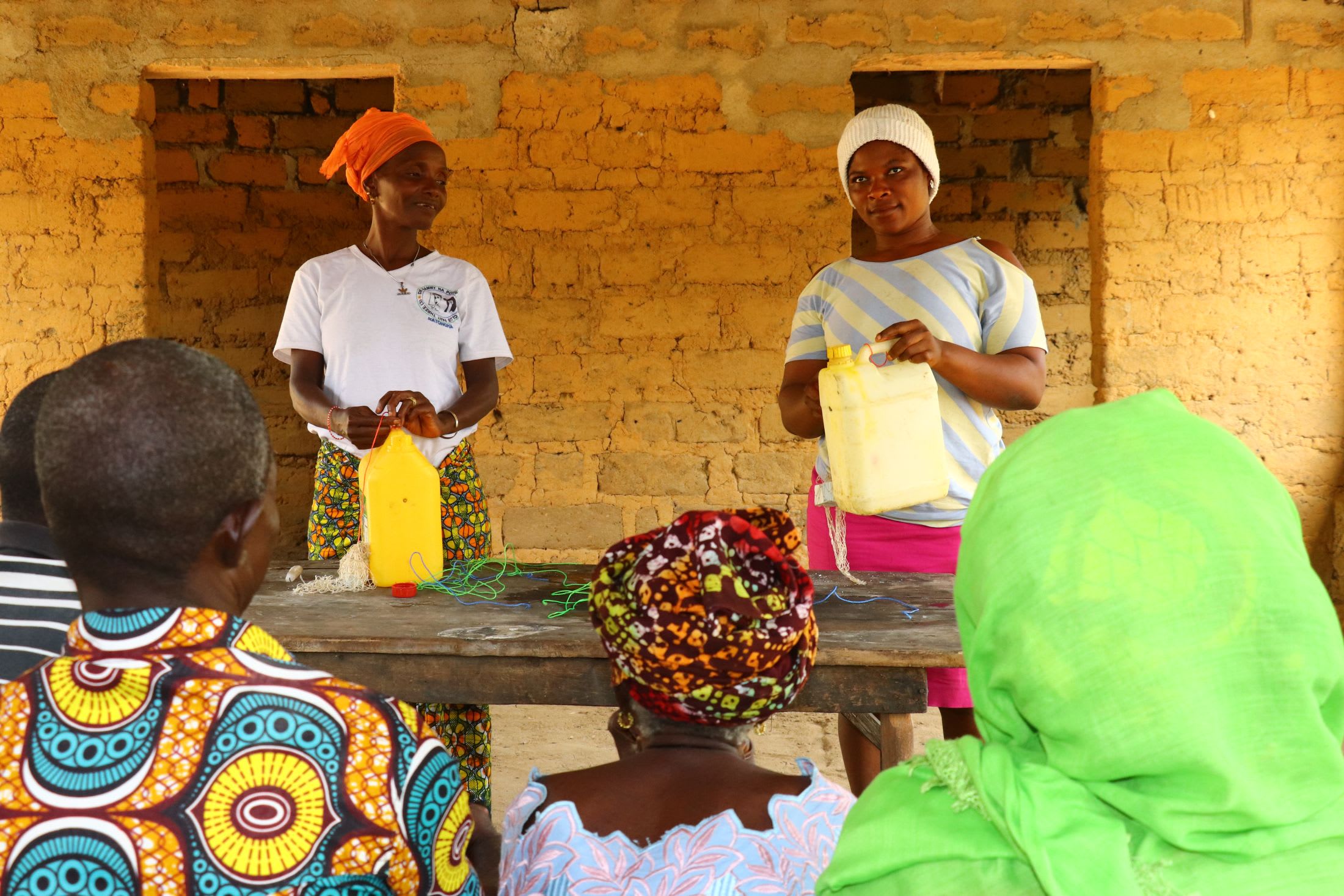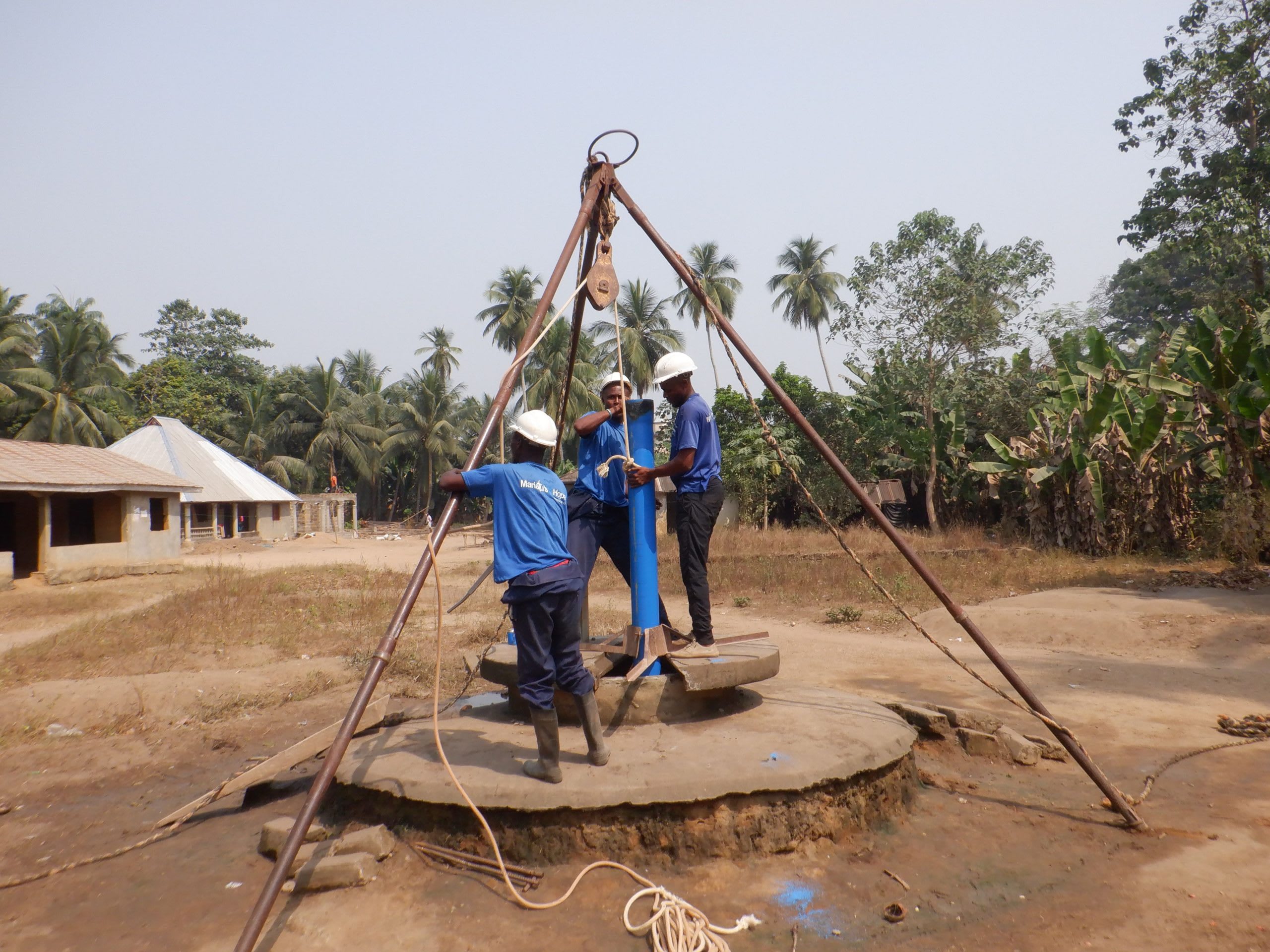The 200 people of Katongha struggle to access sufficient water. Their primary water source, a dug well (seen below), must be rehabilitated because it's seasonal (dry from December to April) and open to contamination, making people choose between their health and thirst.

33-year-old Kadiatu Kargbo, seen below collecting water from the alternate water source that community members must rely on when their well is not operational shared how the water crisis affects her life.
"I am a trader, [and] most of the time I must locate trader fairs in different chiefdoms in Port Loko district like Borope town and Kalangba village. I also extend it to Kambia District Barmoi Luma, the biggest in the North West region. I am staying with my daughter, a nursing mother of a three-month-old baby. I must wake up early to fetch water for household needs, such as washing clothes, cooking, and drinking."
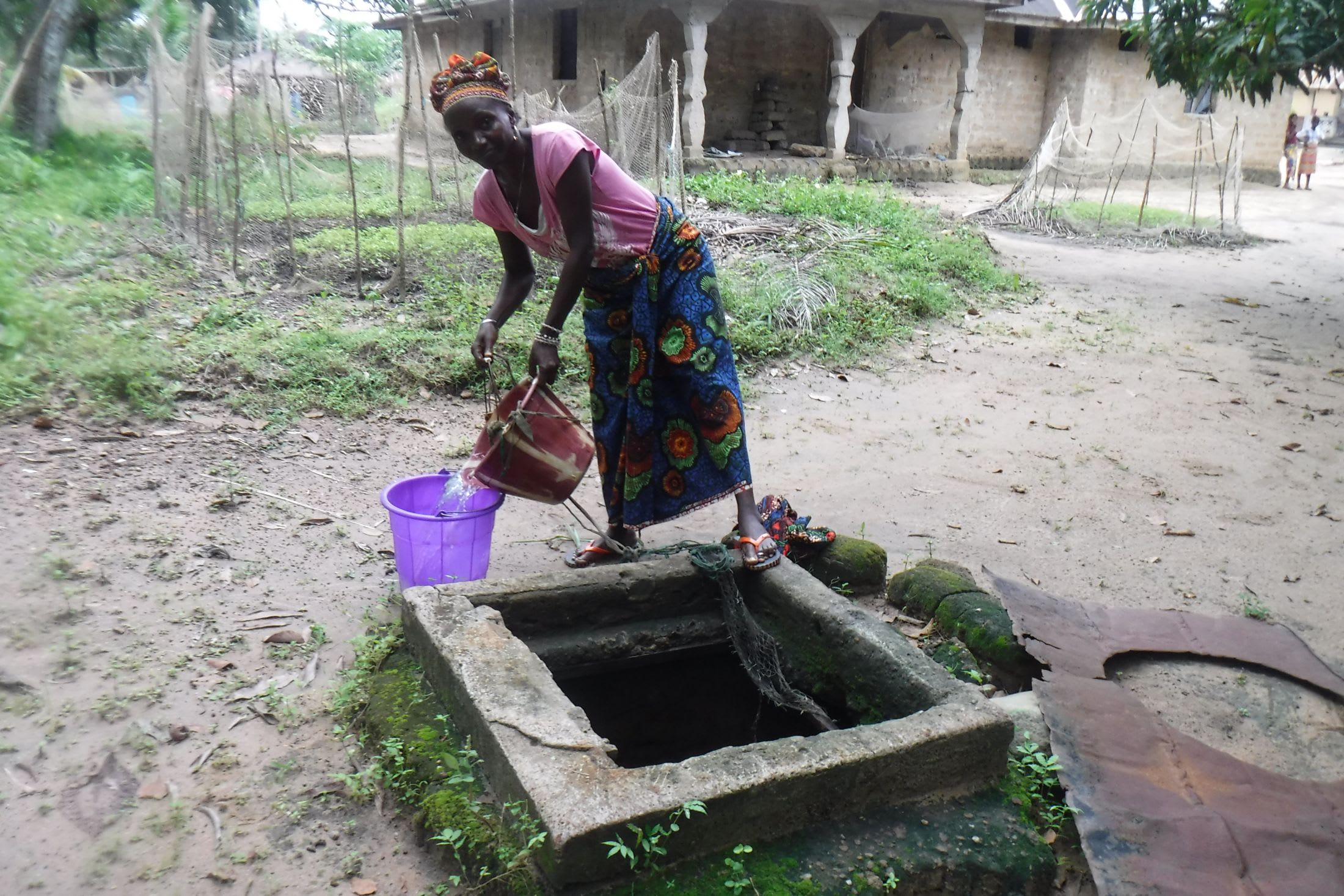
"Before I go to the water source in the morning, others may already be fetching water. By the time they finish getting water, I will do my trade activities later than usual, such as going to the marketplaces to buy food items and non-food items to sell in my community. Most times, others have bought decent food items that I could have bought if I was there on time. This lowers the profit I can make, and sometimes, I am at a loss when I am unable to sell more than I bought. This is all because of the shortage of water in my community," she continued.
As Kadiatu shared, collecting water not only absorbs precious time that could be spent on her livelihood but also takes away time from caring for her family. Water is life - without it, farmers don't have enough water. Crops fail, and their businesses struggle, making feeding their children and sending them to school challenging.
13-year-old Nancy K. (seen below) is familiar with the hardship.
She shared, "The main water source, located about twenty meters (65 ft.) from our house, is seasonal from December to April. This affects my not having enough water to use for domestic activities like laundry, bathing, and other uses. Furthermore, the main water source is difficult to get water [from] in the morning when everyone needs water to bathe and wash cooking utensils. This affects [my ability] to go to school on time in the dry season."

"When the main water source gets dry, I must walk twenty-five minutes to the alternate water source to get a single trip of water from that source—both water sources [run] dry [when] we need water for domestic activities. The alternate water source is more contaminated than the main water source; it is an open well that we can use all sorts of containers to fetch water from, and animals also access it. The alternate water source also tastes bad, and when we use it to bathe, it makes us itch," Nancy (seen above collecting water at the alternative water source) continued.
"I am happy for you to come to our community. I visited my uncle in Lungi during holidays, and close to where I was staying, the water source was built by you. I am happy to see them in my community to rehabilitate our well. I will be happy for the rehabilitation of our main water source, which will help to reduce the water challenges in our community," Nancy concluded.

A crucial part of rehabilitating and installing new water points in communities is the training we offer. We tackle life-changing topics, from hygiene and disease prevention to discussing cultural traditions that can sometimes cause harm.
The rehabilitation of the well will enable people like Kadiatu to complete their tasks on time and sell their goods more efficiently, thus enhancing her family's income. Children like Nancy can focus on their education and go to school on time in clean uniforms with enough water for the day. With a better education comes the hope of a brighter future.
The Proposed Solution, Determined Together...
At The Water Project, everyone has a part in conversations and solutions. We operate in transparency, believing it benefits everyone. We expect reliability from one another as well as our water solutions. Everyone involved makes this possible through hard work and dedication.
In a joint discovery process, community members determine their most advantageous water solution alongside our technical experts. Read more specifics about this solution on the What We're Building tab of this project page. Then, community members lend their support by collecting needed construction materials (sometimes for months ahead of time!), providing labor alongside our artisans, sheltering and feeding the builders, and supplying additional resources.
Water Access for Everyone
This water project is one piece in a large puzzle. In Kenya, Sierra Leone, and Uganda, we're working toward complete coverage of reliable, maintained water sources that guarantee public access now and in the future within a 30-minute round trip for each community, household, school, and health center. One day, we hope to report that this has been achieved!
Training on Health, Hygiene & More
With the community's input, we've identified topics where training will increase positive health outcomes at personal, household, and community levels. We'll coordinate with them to find the best training date. Some examples of what we train communities on are:
- Improved hygiene, health, and sanitation habits
- Safe water handling, storage & treatment
- Disease prevention and proper handwashing
- Income-generation
- Community leadership, governance, & election of a water committee
- Operation and maintenance of the water point

 Borehole Well and Hand Pump
Borehole Well and Hand Pump









